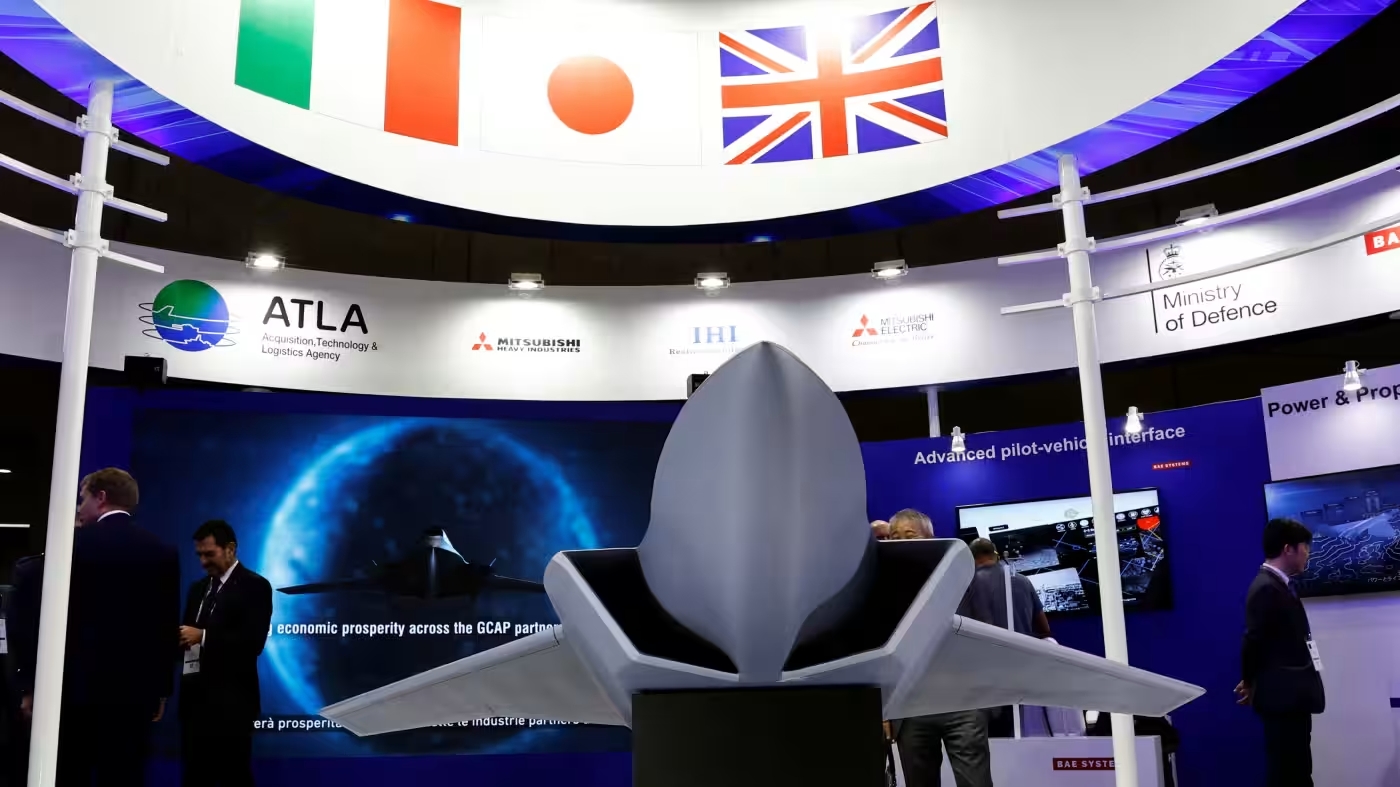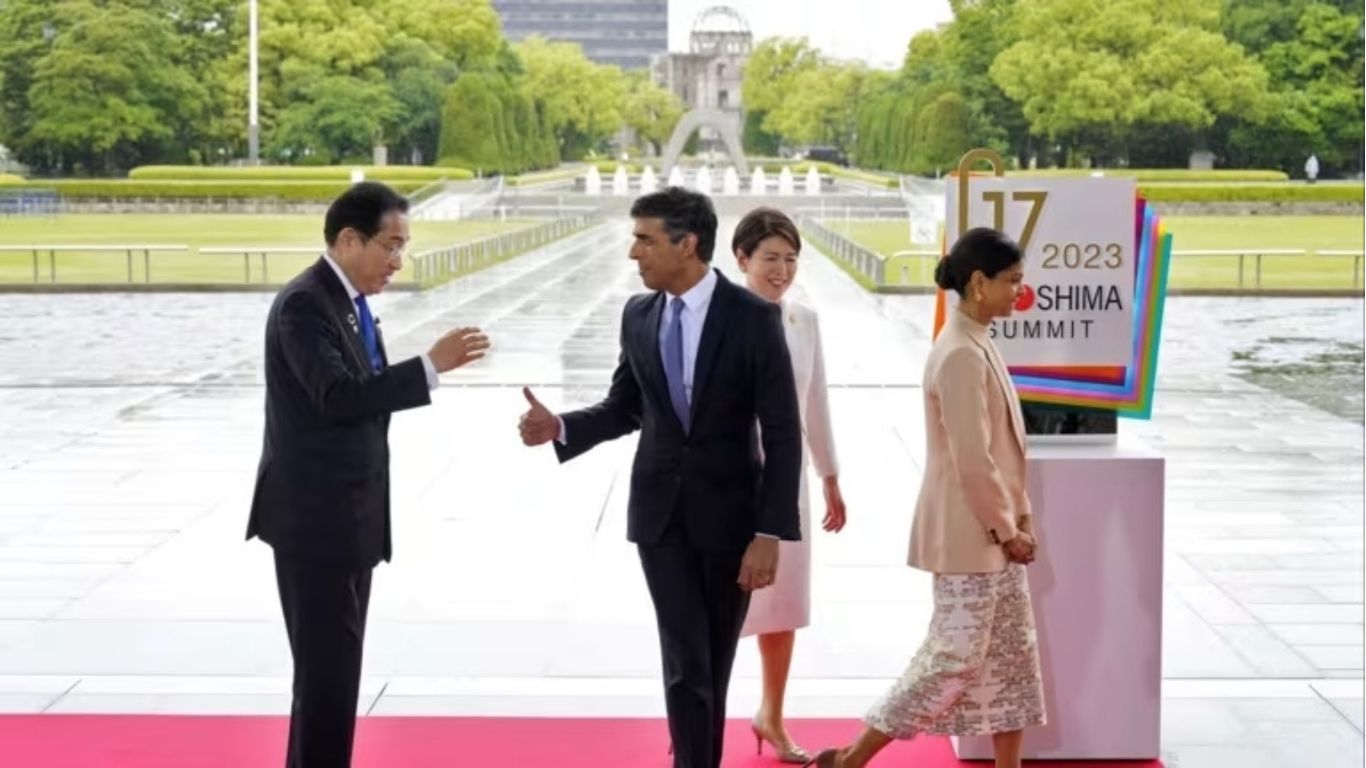U.K. is committed to Indo-Pacific security and stability

Source: Nikkei Asia
A free and open Indo-Pacific is more crucial than ever. This is why the U.K. is strengthening our bilateral, multilateral and institutional relationships across the region to ensure economic and geopolitical security.
Last year's refreshed integrated review of U.K. security, defense, development and foreign policy reinforced our commitment to upholding the integrity and sovereignty of our allies in a region that is at the center of pressing global challenges, ranging from climate change to maritime security.
To achieve this, we are strengthening our defense industrial relationships -- notably with Japan, Australia and South Korea -- as well as building new technology partnerships, diversifying our supply chains and working with trusted partners to build resilience.
These issues are being addressed through the Pacific Future Forum, which the U.K. launched in 2021 to bring together allied governments, business leaders, innovators and entrepreneurs. Participants have been exploring how the big geopolitical, environmental and socioeconomic trends are set to shape global security in the coming decades.
Last month, King Charles III gave his assent to the Trade (Comprehensive and Progressive Agreement for Trans-Pacific Partnership) Act, bringing the U.K. a step closer to becoming the 12th member of that pact later this year.
Accession will be an unshakeable demonstration of our country's commitment to multilateralism. In the face of creeping protectionism, we remain firm champions of free and fair trade.
Joining the CPTPP will connect the economies of the western Pacific to those of the north Atlantic. Together, we can influence the rules and norms of global trade with partners in areas such as state-owned enterprises, digital trade and labor standards, counter unfair trade and diversify supply chains in areas such as critical raw materials.
The U.K. already has an ambitious network of free trade agreements with some of the largest economies in the Indo-Pacific region, including Australia, Japan, New Zealand, Singapore, South Korea and Vietnam.
These are helping our nation become a truly global Britain but we are also working hard to secure a deal with India, with official-level talks continuing. An agreement there would boost our 38 billion pound ($47.3 billion) bilateral trade relationship and help businesses and communities across the U.K. We have made good progress, but will only sign a deal that is fair, balanced and ultimately in the best interests of the British people and the economy.
Critical minerals and supply chains are also an increasing area of partnership. The U.K. has signed agreements on these areas with South Korea, Japan and Australia to promote dialogue and cooperation.

During its Group of Seven presidency last year, Japan notably made economic security a key policy plank. It also forms a crucial part of our bilateral relationship, including the Hiroshima Accord, the global strategic partnership our two governments formed last year.
Under this pact, we have begun ministerial-level dialogues around defense, strategic economic policy and trade, an official-level dialogue on economic security, and broader partnerships on digital technology, semiconductors and critical minerals. We are also working together on global issues like climate change.
The Hiroshima Accord captures key areas of defense and security collaboration, including the Global Combat Air Programme, under which our two countries, together with Italy, will develop a next-generation military aircraft. This effort will bring together Japanese, Italian and British defense and security expertise to strengthen our defense industrial base and secure high-skilled jobs in our countries.
Defense partnerships are an important mechanism for stability. AUKUS, our defense and security partnership with Australia and the U.S., is one of the most strategically important capability collaborations in decades and will leverage the best of British expertise in science and technology.
Over two years into this arrangement, we are progressing rapidly on delivering a state-of-the-art conventionally armed, nuclear-powered submarine capability to Australia and accelerating trilateral cooperation on advanced military technologies. Britain's BAE Systems has just announced a new partnership with Australian company ASC to build the country's nuclear-powered submarines, a major milestone for the AUKUS program.
Security is critical in cyberspace too and we are working with like-minded economies to develop regulations to keep up with the pace of change. The pioneering U.K.-Singapore Digital Economy Agreement is the world's most innovative trade agreement, designed to evolve as technologies and cyber norms develop over the coming years.
Trade and economic security are at the epicenter of the Indo-Pacific region, and a crucial pillar of wider geopolitical and environmental security, as well as a focus for the U.K. for years to come. The U.K. will work to be a beacon of free and fair trade and build new partnerships for mutual prosperity and security right across the region.
